Zied Boussen is a Tunisian activist and researcher running Pandora Consulting, a Research & training center on governance, public policies and human rights. His research focuses on institutional and legal reforms in transitional contexts. Zied acted as Senior Fellow for Arab Reform Initiative in Tunis from 2020 to 2023. He also works as a trainer on the same topics for Tunisian, Libyan and Moroccan associations. He monitors the institutional reforms in these three countries such as justice and security sectors reform, decentralisation and local power, Human rights enforcement, and environmental policy reform.
How did you experience institutional and legal reforms since 2011 in Tunisia?
When the revolution happened in 2011, I was still a law student in Tunisia, and I could see a complete change in the institutional and legal framework. In a very short period of time, we dropped the older Constitution from 1957, basically put in place with the independence of Tunisia, as well as a series of legal texts mostly related to rights and fundamental freedoms. A number of institutions also fell, such as the government and most of the elected bodies.
Starting from then, it was a period of deconstruction institutionally and legally in a very little period of time, it was weeks of deconstruction. Then, the reconstruction of the post revolution Tunisia took years. It started with the election of the National Constituent Assembly in 2011 and was followed by the adoption of the Constitution 3 years later in 2014, as well as by the first democratic elections the same year in 2014, and in 2018 the local municipal elections. We reformed almost the entire legal framework related to rights and freedoms: on elections and voting, association and assembly, freedom of the press, freedom to join or form parties, unions, access to information, laws on transparency and accountability, and so on. Yet, other laws did not change that much, especially those related to the criminal and penal system.
Do you consider, from the current situation, that the reforms had a positive impact on Tunisia’s social reality?
Now, 12 years after the revolution, it is easier to understand the impacts of the revolution than just at the moment when they happened. Now, it can be seen that we went through three phases. The first one took from 2011 until the adoption of the Constitution in 2014, and was the most democratic, open and agitated period in Tunisia. Then, from 2014 to 2019 we went through a period of more stability but a lot of conflicts. And finally, from 2019 until 2021 and the coup of Kaïs Saied, a backward step in the democratic transition took place. In the world of research and academia, the term ‘de-transition’ has been used to describe this situation, which is basically going back to everything we acquired, one by one every right and freedom, and removing the pillars of what is democratic, openness, transparency, etc.
When it comes to the social or economic impact, it is important to understand that revolutions and transitions, in Tunisia and in any country, are never a period of stability, but are characterised by conflict and turmoil. That is why one should not expect any country going through a transition to survive economically. We have very few exceptions after World War II in Europe, but it is just because the United States put so much money in those countries. But for other countries, especially the Arab world or Africa, the countries that go through a transition generally struggle.
Today, it can be said that the economic and social impact was quite negative. But we can say that now that we know that this is a very natural part of the transition process. GDP cannot be expected to grow at the same time as undergoing a political transformation. Also it is very unfair to blame the revolution or the transition for the social and economic impact in Tunisia, because the revolution happened because Ben Ali’s regime was doing very badly. In my opinion, a lot of the negative impacts that have been associated with the revolution have actually come from a long time ago, from the mismanagement of Ben Ali’s government.
A lot of the negative impacts that have been associated with the revolution have actually come from a long time ago, from the mismanagement of Ben Ali’s government.
On the other hand, it is also important to consider the regional context. Of the two neighbours we have, Libya has gone through a civil war, which also has an impact in Tunisia; and with Algeria there have been economic as well as political and diplomatic consequences since the Hirak movement in 2019. And this without mentioning what is happening in other areas of the Arab world or the Sahara region. By this I mean to point out that the regional context must also be taken into account in order to understand the social and economic situation in Tunisia, it is not enough to blame the revolution on its own, that would be very unfair.
Finally, I had not mentioned the links that ties Tunisia with the European Union, which were not necessarily good in terms of social and economic change. Europeans, from the first day of the revolution, played on the basis of European economic interest and lobbied at many levels, despite the fact that Tunisia does not represent a major geostrategic interest for Europe or its investment. This, therefore, was not helpful.
After presenting the current situation in Tunisia, it would now be interesting to talk about Islam specifically. How was the role of the Islam addressed in the Constitution of 2014?
I do remember that at first Islam was mentioned very lightly, mostly in the preamble of the Constitution. But it didn’t have a specific mention within the Constitution, basically because Tunisia’s legal system is not based on Shariah, like other countries.
In 2013 and 2014, when the Constitution was being discussed, the Salafist movements pushed in the National Constitutional Assembly to include Islam into the Constitution. Parties of the left and centre worked for the development of an article that aimed to limit the power of religion and religious leaders within the newly established Tunisian system, because many people feared that Ennahda might be seeking the establishment of a theocratic system. This legal rule basically stated that the state should rule religious places and is the protector of religion, among other things, which was at that time a huge dilemma and polemic within the National Constituent Assembly because it meant that the civil power was over the religious. Finally, the law was adopted and included into the Constitution despite the opposition of most members of Ennahda, that was at that time the party with the leading assembly and leading the government.
Do you think that debate could be reopened?
I think it would be possible but I don’t think it is likely to happen. First, our legal system mostly comes from the French one, which is very bureaucratic and legislative. We have a very heavy legal system with a lot of rules, and most of them are not based on Shariah. So, practically, if Shariah were to be imposed as the basis of the legal system, it would mean changing the entire legal system, which goes beyond the capability of Tunisians jurists. On the second side, I think most interestingly, what Tunisians would be thinking about is what Sharia could bring in economic or social terms. For example, when it comes to human rights and fundamental freedoms, I hardly see how Tunisians will move to any kind to Shariah, because it would mean renouncing so many rights, especially when it comes to women and minority rights, to inheritance laws, etc. Now, people are much more interested in seeing the economic and social situation improving instead of any ideological debate like the one we had 10 years ago.
Now, people are much more interested in seeing the economic and social situation improving instead of any ideological debate like the one we had 10 years ago.
In addition, these last years have shown that many Tunisians are very okay with our legal and constitutional system as it is. We had some steps made to Islamic law, which comes for example to the banking system and Islamic financial banking. But we don’t see a clear proof or a way of people moving from a transitional capitalist system to the Islamic one. And one last thing, I think Shariah is very tight to other systems in other Arab or Muslim countries, maybe Saudi Arabia or Iran. I don’t think Tunisians today like that kind of political system, even the very conservative ones, even those who applied Shariah on a daily basis for themselves. I don’t think they would fight politically or any other way for that.
What is the relation between Islam and the state in Tunisia?
Although Tunisia is not a country governed by Islamic law, this does not mean that our legal system or our constitutional system is not influenced by Islamic law. This doesn’t mean that our legal system or our constitutional system is influenced by the Islamic law. This influence is very obvious and natural, and it doesn’t mean an Islamic legal system or an Islamic state. I think all Tunisians, except for a few exceptions, are very comfortable with the idea of having a civil state. But a civil state doesn’t mean that it is not influenced by religion, there is influence from Islamic and religious laws, but it is not the core of the legal or institutional system.
Even so, some areas of our lives are completely driven by Islam, especially when it comes to private and individual rights. For example, adoption is forbidden in Tunisia, there is another system, called Kafala, that comes from Islamic law. Another example is the Code of Personal Status, that is on the personal level and is influenced by Islamic law. Also, in economy or in some social aspects it can be found rules coming from Islamic law, and that is an influence coming from religion.
What do you think the future holds for Tunisia?
I don’t know but I have some clues. The first thing is that it took years to notice but now we all know that we are in an autocratic regime, if not dictatorship. But it is mostly led by the security sector, just like Ben Ali’s regime was. On a more social level, people are fed up with the political turmoil and conflict, with the instability and the 10 or 11 governments we had since the revolution, the bad image of the parliament, etc. In general terms, people are fed up with the practice of democracy that we had, they don’t see any positive impact of democracy on Tunisia since 2011. But not all of that opinion is true, and it is mostly unfair to transition and to democracy, because many things blamed upon democracy, actually have nothing to do with the democratic function in the political system.
Sadly, there is nothing we can do now in the short term. Many political opposition leaders are in jail for expressing their opinions or other reasons, and there is a conscious exercise of political neutralisation. Also, in 2022 we have seen a crack down on the justice system, also on journalists, etc. It has also been possible to observe an attempt of the government to shrink the space, especially when it comes to freedom of association. They dislike how activists, human rights defenders and organisations are questioning the work of the government, and specially the work and actions of the political and security sector.
I don’t know what is going to happen next but I have been looking at recent polls, and when Tunisians are asked how truly committed they are in democracy, we get very high scores, between 78% of Tunisians still truly believe in democracy, freedom of expression, etc.
When Tunisians are asked how truly committed they are in democracy, we get very high scores, between 78% of Tunisians.
Even Kaïs Saied and the coup did not come in 2021 in the replacement of a fully functioning positively working democratic system. It happened in July 2021 in the context of a dysfunctional democratic system. Elections were happening in a democratic, transparent and kind of fair conditions, but except for that, nothing from the democracy was doing well. I think it is important to understand that it did not happen in a context of people losing faith in how the system was working.
I will finish by saying that, despite the rough context of the country and the region, many people are still very ready to fight. It is just that people lack the structure, or that there are no major political parties, the unions are completely in silence, civil society organisations are having a hard time surviving, etc. So, it is the structure in general that is missing but it can’t be known, we can stay like this for 15 years or in maybe 6 months change to a new way of activism structure. The only thing that I can tell is that Tunisia is very surprising, sometimes surprising in bad ways and others in good ones.
Many people are still very ready to fight. It is just that people lack the structure, or that there are no major political parties, the unions are completely in silence, civil society organisations are having a hard time surviving, etc.
Any final thoughts you would like to share?
I would like to talk about the influence of the occupation and the genocide in Palestine in Tunisian politics. In Tunisia we feel daily the conflict in Palestine and I think this is causing Tunisians to have faith in democracy again, or at least into the idea that they should put attention back into policies and into what is happening in other countries, and step up on their feet again, I hope that looking at democracy. The most important is that Tunisians get interest back, because it is not only losing faith in democracy, it is also losing faith in politics in general. And we can see this algo in many European countries, especially in people who are under 30-40 years old losing faith in any kind of politics, and the easiest option ends up being autocracy.
The genocide in Gaza and the occupation, the war against Palestinians, brought faith back into Tunisians minds and hearts, together with the idea that people need to stand up again and fight for their rights and a better future. Maybe this is going to result in something positive or maybe not, it can’t be known for certain.
The genocide in Gaza and the occupation, the war against Palestinians, brought faith back into Tunisians minds and hearts, together with the idea that people need to stand up again and fight for their rights and a better future.
On the other hand, it should be noted that most of European partners positions on the genocide in Gaza are perceived very negatively by Tunisians. And because European countries, especially France, Italy, Germany, that are the most influential in Tunisia, also push for democracy, maybe people have attempted to reject democracy because they feel that it’s a double standard system and that democracy is no longer really being defended, but that there are a number of hidden interests.
My fear is that if the genocide keeps going on it could have a direct impact on the relation, not only of the Tunisians towards democracy, but the triangle Tunisians, Europeans and democracy and human rights. And I think, as I have talked about this with several colleagues and researchers in the region, that this is not only going to be limited to Tunisia. The level of disappointment of Tunisians toward Europeans is unprecedented and I don’t think that ears, minds and hearts will be as open as they used to be when it comes to any rhetoric coming from European countries, including the rhetoric about human rights, democracy, equality, etc. It doesn’t mean that people don’t believe in that, it’s just that they are shutting their ears off from that rhetoric coming from western. I have the feeling, it is not documented, but I have the feeling that is probably the same in Lebanon, in Morocco, in Algeria, in Egypt.
Ainara García Sánchez – FUNCI

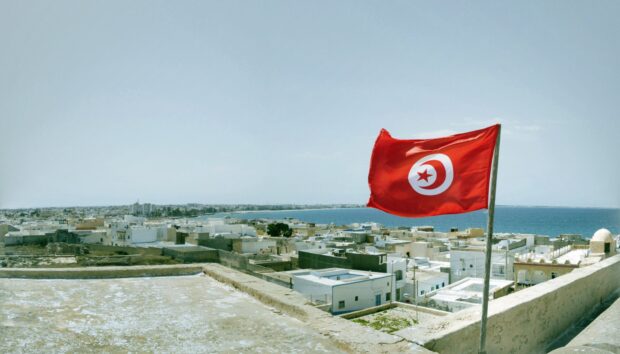

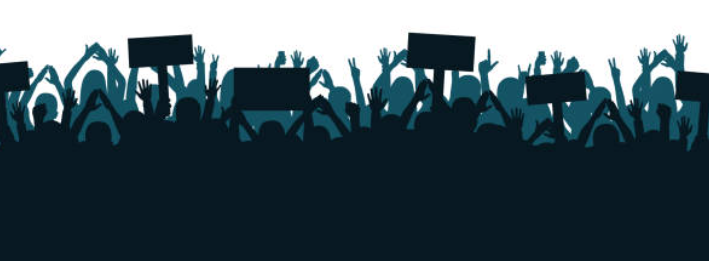
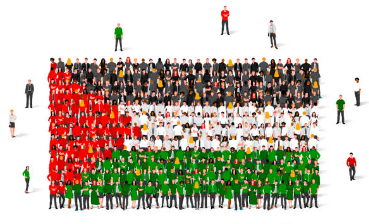

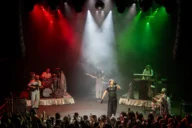
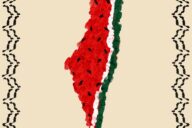










No Comments